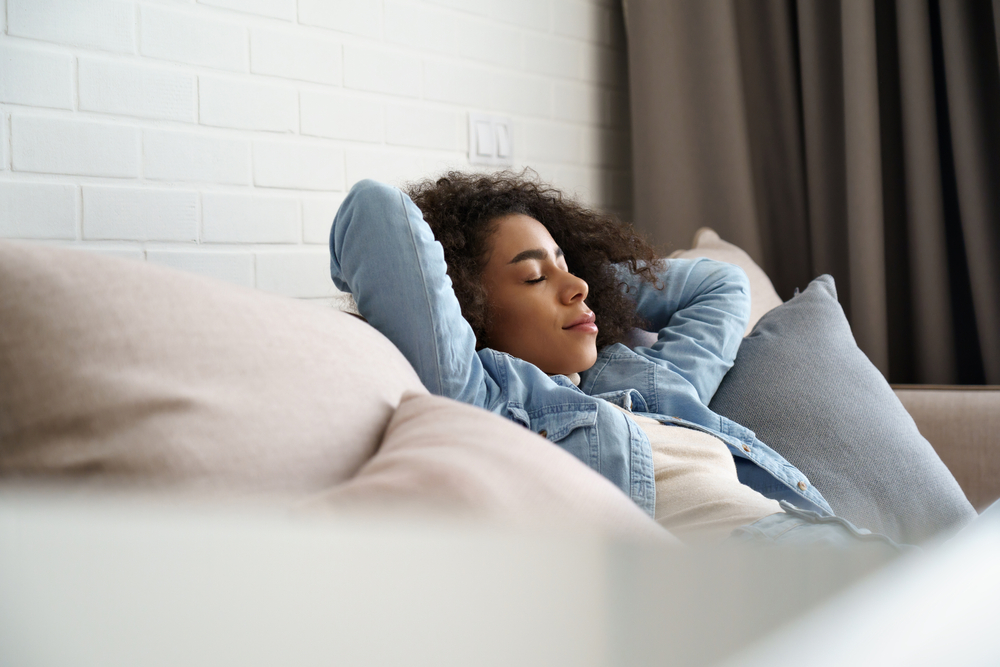Weekends often fall victim to competing pressures, the allure of productivity, the siren call of social media, the backlog of household tasks, and the simple exhaustion that leads many to spend precious hours off in a state of semi-conscious scrolling. What should be a period of renewal instead becomes a blur of errands, obligations, and passive entertainment that leaves many feeling oddly depleted by Sunday evening. This phenomenon, the “weekend deficit”, reflects a fundamental misunderstanding of what genuine restoration requires.
The science of effective recovery
Recovery isn’t simply the absence of work but requires active engagement in experiences that replenish specific resources depleted during the workweek. Occupational health research distinguishes between several types of recovery experiences, each addressing different dimensions of wellbeing.
Psychological detachment, mentally disconnecting from work concerns, represents the foundation of effective recovery. Studies show that people who fully disengage during off-hours report higher life satisfaction, better sleep quality, and lower burnout rates regardless of how demanding their jobs are. The brain requires this cognitive gear-shifting to consolidate learning, process emotional experiences, and restore attention capacity.
Physical recovery addresses the body’s need for movement, rest, and sensory change. The typical knowledge worker experiences a particular pattern of depletion, physically understimulated yet mentally overstimulated. This imbalance creates a distinctive recovery profile where both physical activation and mental quieting become essential for restoration.
9 weekend practices that maximize restoration
Research in leisure psychology, chronobiology, and occupational health suggests these evidence-based recovery practices:
The Friday evening transition ritual: Creating a deliberate boundary between work and weekend through a consistent practice signals to your brain that recovery time has begun. Successful transition rituals typically involve physical movement, sensory contrast from the workday environment, and symbolic completion actions. Examples include post-work walks in natural settings, playing specific “weekend has begun” music, or brief journaling sessions acknowledging the week’s accomplishments before setting work aside.
Strategic time in nature: Even brief nature exposure, 20 minutes in a local park or garden, significantly lowers stress hormones and activates the parasympathetic nervous system. This effect, called “soft fascination,” allows attention resources to replenish as the brain engages with non-taxing sensory input instead of directed concentration. Weekend mornings typically offer both lower crowd levels and optimal hormone conditions for this practice.
Social connection without screens: Face-to-face social interaction activates neural pathways associated with safety and belonging that remain understimulated during digital communication. Whether through shared meals, walking conversations, or small gatherings, in-person social time provides emotional regulation benefits that virtual interaction cannot fully replicate. The key element is presence, putting devices away to enable genuine connection.
Physical activity unlike your weekday movement: Activity that contrasts with typical weekday patterns provides enhanced recovery benefits. Desk workers often benefit from dynamic, whole-body movement like hiking, dancing, or recreational sports. Those with physically demanding jobs may find greater restoration in gentle, mindful movement like yoga or swimming. The contrast itself contributes to the rejuvenating effect.
Bounded planning periods: Setting aside a defined 15-30 minute block for upcoming week planning prevents work concerns from intruding throughout the weekend. This contained approach, ideally scheduled for Sunday afternoon rather than evening, satisfies the brain’s need for preparation without allowing anticipatory stress to dominate recovery time. Writing concerns and priorities down externally rather than mentally rehearsing them allows for true disengagement.
Sensory-rich cooking experiences: Preparing food engages multiple senses, requires present-moment attention, and typically produces both immediate gratification and social connection opportunities. Unlike passive activities, cooking offers the satisfaction of tangible creation without the pressure of perfectionism that can accompany other creative pursuits. The sensory engagement provides particularly effective recovery from visually-dominated, abstract knowledge work.
Low-stakes learning experiences: Engaging with new information or skills in pressure-free contexts activates reward pathways while building confidence and self-efficacy. Unlike professional development, weekend learning works best when divorced from performance evaluation. Activities like casual language practice, musical exploration, or hands-on workshops provide cognitive stimulation that differs qualitatively from work-related thinking.
Temporary technology boundaries: Selective restriction of devices that trigger work-related thoughts or comparison-based dissatisfaction creates space for more restorative activities. Rather than attempting full digital detox, research suggests targeted boundaries, like keeping phones out of bedrooms, designating screen-free periods, or removing social media apps during weekends, prove most sustainable and beneficial.
Sunday evening buffer zones: Creating a consistent 1-2 hour period on Sunday evenings for calming, pleasant activities buffers against the “Sunday scaries”, the anticipatory anxiety about the week ahead that often colonizes the weekend’s final hours. Activities that combine gentle physical relaxation with light mental engagement, reading physical books, peaceful walks, bathing rituals, or hand crafts, prepare the body and mind for sleep while preserving the weekend’s restorative benefits.
Recovery styles and personal differences
Individual recovery needs vary significantly based on personality, work demands, life stage, and mental health factors. Understanding personal recovery patterns improves weekend planning.
Extroverts typically gain energy from social interaction, making peopled activities genuinely restorative. Introverts may require substantial alone time to recharge, finding social plans more depleting than rejuvenating. Many people fall somewhere between these poles, needing a carefully calibrated mix of social connection and solitude.
Those in emotionally demanding roles, healthcare, education, customer service, or caregiving, often benefit from activities offering emotional simplicity and clear boundaries. Their recovery needs frequently include protection from others’ emotional demands rather than additional social connection.
Individuals with anxiety disorders may find unstructured time itself stressful rather than restorative. For this group, loosely planned recovery activities with flexibility for spontaneity often work better than completely unscheduled time or rigidly organized weekends.
Parents of young children face particular weekend recovery challenges, as their care responsibilities continue throughout supposed “off hours.” For this group, research suggests that brief but complete breaks, where someone else takes full responsibility even for 1-2 hours, provide more recovery benefits than longer periods of partial attention division.
The bigger recovery picture
Effective recovery extends beyond single weekends to encompass broader patterns of work and rest. Creating sustainable recovery requires attention to several factors:
Sleep debt accumulation during workweeks cannot be fully repaid through weekend catch-up. While additional weekend sleep helps, chronic sleep restriction ultimately requires addressing weekday sleep patterns. Consistent sleep timing, even on weekends, helps maintain circadian regulation that supports both daily recovery and weekend enjoyment.
Vacation planning affects weekend needs. Regular vacations, ideally multiple breaks of at least four days rather than a single extended absence, reduce pressure on weekends to fulfill all recovery needs. These longer recovery periods allow deeper restoration that weekend hours alone cannot provide.
Cultural expectations around “worthy” leisure activities can undermine genuine recovery. The most effective restoration comes from activities aligned with personal values and recovery needs rather than social media-worthy experiences or status-oriented pursuits. Distinguishing between intrinsically rewarding activities and those pursued for external validation improves recovery quality.
The ability to enjoy unstructured time represents a skill many adults have lost. Relearning the capacity to simply be, without constant productivity or entertainment input, may initially feel uncomfortable but ultimately provides unique restoration benefits that scheduled activities cannot offer.
As workplaces increasingly blur the boundaries between professional and personal life, intentionally designed weekends become not merely pleasant but necessary for sustainable performance and wellbeing. The most effective weekend recovery doesn’t just help people work better on Monday, it creates space for the parts of life that give work its meaning in the first place.


















